耶鲁大学开放课程—哲学:死亡.10.Open.Yale.course—Philosophy:Death.DivX-YYeTs人人影视 [字幕转换助手
耶鲁大学开放课程—哲学:死亡.05.Open.Yale.course—Philosophy:Death.DivX-YYeTs人人影视 [字幕转换助手

因为自由意志的内涵就是
Because the notion of free will was that
即使我再次处在相同的地点
even if I was in the very same spot again,
尽管决定论这个词有些术语化
determinism being a bit of philosopher's jargon
如果我们以某种方式
for when it's true of these laws that
设定了一个物体或者一个系统
or a physical--or a system--
阐述这个论证
goes like this,
这是就我们在上节课结束时讲到的内容
and this is where we were at the end of last time.
以上的观点是
The thought is that,
自由和被决定
there's a kind of incompatibility
所以 我们得到一个结论
So--a conclusion--
我们不是纯粹的物理系统
We are not a purely physical system.
要解释我们有自由意志这一事实
To explain the fact that we've got free will,
反驳者会说
so the objection goes,
《耶鲁大学公开课:死亡》笔记

《耶鲁大学公开课:死亡》笔记我们可以把这第一种观点称为二元论物质实体。
命令肉体。
但另一方面,灵魂也会受到肉体的反作用。
一方面,我们言谈间好像灵魂是有处所的,我们说灵魂在肉体中。
另一方面,也许这都是幻觉,也许灵魂根本没有任何处所,也许我有一个处所的感受,实际上只是我从我的肉体获得的所有感觉输人形成的幻觉。
我们还有物理主义者的观点。
物理主义者也相信心灵,但是他们认为,心灵只是一种谈论肉体能力的方式。
物理主义者当然不相信二元论者信奉的非物质的灵魂。
所以为了区分清楚,我将说物理主义者根本不相信灵魂。
他们相信心灵,但是不相信灵魂。
第三章灵魂存在的论证对于我们看不见(又听不见、尝不到,也无法用内感官观察到)的东西,我们该如何去证明它们的存在呢?最重要的方法也许是这样的:有时我们合理地设定存在某种我们看不见的东西,以便去解释我们都认同其存在的其他事情。
关于最佳解释推论,在此要强调一下。
我们可以合理地相信某事物,不仅是因为我们需要靠它提供某种解释,而是由于它能提供我们可以得到的最佳解释。
的肉体的生命。
纯粹的机器不能思考、推理,也没有信念和欲望。
即使是在解释思考、推理和计划时,好像我们也并不需要诉诸灵魂。
如果我真的有自由意志,那我就不可能受制于决定论法则。
换句话说,受制于决定论法则的东西不可能拥有自由意志。
这两者是不相容的。
也许能够想象出来某种事物,并不一定代表该事物具有逻辑上成立的可能性。
想象力是逻辑成立可能性的正确向导,也就是说,但凡我们能够想象出来,便具有逻辑上成立的可能。
没准想象力是逻辑成立的可靠向导,但凡能想象出来的,就具有逻辑成立的可能。
即使我们同意柏拉图的理念存在,即使我们也同意灵魂存在并且可以被思考,·我们还没有得到任何充分的理由去相信灵魂一定是不朽的。
因此,柏拉图的第一个论证—由理念本质引起的论证—我认为是站不住脚的。
组成部分的事物可以被毁灭。
事实上,柏拉图本人在其他对话录中,反对灵魂的单纯性。
耶鲁大学开放课程—哲学:死亡.15.Open.Yale.course—Philosophy:Death.DivX-YYeTs人人影视 [字幕转换助手

But think of the various periods during the night
的各个不同时段
in which you are in a deep, deep dreamless sleep.
你并没有在思考
You're not thinking.
我们是不是只能说我死了
do we have to then say I'm dead?
那似乎是定义死亡的最自然的方式
Well, that may seem to be the most natural way to define death,
但不可取
but it's not an acceptable approach.
So we need to revise our account of what it is
一个人死亡的具体含义
on the physicalist picture to say that you're dead.
死亡到底意味着什么
What is it to be dead?
不可能只是不再运行人体功能
之前我们区分了肉体的死亡
Previously, we distinguished between the death of my body
和作为人的死亡
{\c
现在我们来着重研究作为人的死亡
let's focus on my death as a person.
如果我没有运行人体功能
If I'm not P-functioning,
On Judgment Day, God resurrects the dead.
耶鲁大学开放课程—哲学:死亡26OpenYalecourse—Philosophy:
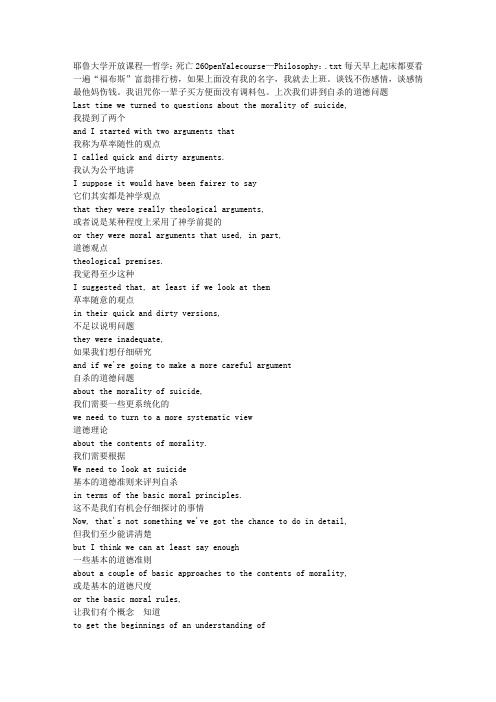
耶鲁大学开放课程—哲学:死亡26OpenYalecourse—Philosophy:.txt每天早上起床都要看一遍“福布斯”富翁排行榜,如果上面没有我的名字,我就去上班。
谈钱不伤感情,谈感情最他妈伤钱。
我诅咒你一辈子买方便面没有调料包。
上次我们讲到自杀的道德问题Last time we turned to questions about the morality of suicide,我提到了两个and I started with two arguments that我称为草率随性的观点I called quick and dirty arguments.我认为公平地讲I suppose it would have been fairer to say它们其实都是神学观点that they were really theological arguments,或者说是某种程度上采用了神学前提的or they were moral arguments that used, in part,道德观点theological premises.我觉得至少这种I suggested that, at least if we look at them草率随意的观点in their quick and dirty versions,不足以说明问题they were inadequate,如果我们想仔细研究and if we're going to make a more careful argument自杀的道德问题about the morality of suicide,我们需要一些更系统化的we need to turn to a more systematic view道德理论about the contents of morality.我们需要根据We need to look at suicide基本的道德准则来评判自杀in terms of the basic moral principles.这不是我们有机会仔细探讨的事情Now, that's not something we've got the chance to do in detail,但我们至少能讲清楚but I think we can at least say enough一些基本的道德准则about a couple of basic approaches to the contents of morality,或是基本的道德尺度or the basic moral rules,让我们有个概念知道to get the beginnings of an understanding of更仔细地研究自杀的道德问题what might emerge about the morality of suicide会得到什么if we were to do that more carefully.先不谈自杀问题So, holding off on suicide for the moment,我们先问一下let's ask ourselves,是什么决定了一个行为what is it that makes an action是否符合道德morally acceptable or morally forbidden?毋庸置疑This is, unsurprisingly,不同道德理论对此存在争议something that different moral theories disagree about.但至少有一个要素或特征是所有But there's at least one factor or one feature that all,或者说大部分道德理论所接受的or almost all, moral theories agree about.那就是行为造成的后果很关键And that is that the consequences of your action matter.我们或许可以或许不可以That is, we might or might not只把行为的后果当作道德评判的标准think that consequences are the only things that are morally relevant 来考察行为是否道德when we think about the morality of your action,但行为造成的后果but surely it is one thing that's morally relevant--肯定是其中一个标准what are the consequences of your action going to be.因此下面我们从后果的角度So, let's think about the morality of suicide来思考自杀的道德问题with an eye towards consequences,因为我们讨论的是道德问题bearing in mind that since we're talking about a moral point of view 所以我们要考虑we need to take into account行为的后果对所有人造成的影响the consequences as they affect everybody.那么受自杀行为影响最大的人Now, the person who, of course, is most affected by suicide is,当然就是自杀者自己of course, the person who is killing themselves.似乎我们的第一印象很清楚And at first glance it might seem pretty clear自杀对其本人是不好的that the consequences of suicide are bad for that person.毕竟这个人之前活着而现在死了After all, the person was alive and now they're dead,我们通常将死亡造成的结果看做坏的and we normally would take death to be a bad result.假如我告诉你If I were to tell you,墙上有个开关"Oh, here's a switch on the wall.只要你按动开关If you were to flip the switch,一千个活着的人a thousand people who would otherwise be alive就会立即死亡would end up dead,"一般情况下你一定会同意you would normally take that to be a pretty compelling argument 不能按开关against flipping the switch.为什么呢因为结果是坏的Why? Because the result would be bad.为什么呢因为一千个人会死去Why? Because a thousand people would end up dead.也许一个人死亡的坏处Well, one person ending up dead并不比一千个人死亡的坏处更大isn't as bad as a thousand people ending up dead,但即便如此but for all that我们不是仍然可以说结果是坏的吗shouldn't we still say it's a bad consequence?由此我们不是可以说And as a result of that, shouldn't we say that无论结果在道德评判中的however far appeal to consequences goes作用有多大in terms of giving us our moral theory,我们难道不应认为从结果来看don't we have to say in terms of consequences,或者说考虑到结果or with regard to consequences,自杀是不道德的suicide is immoral?但先别急But not so quick!尽管死亡通常是坏事Even though it's true that normally death is a bad thing,但并非总是坏事it's not always a bad thing.我们在讨论死亡的主要坏处时This is the sort of thing that we've learned by thinking about 学习过这个问题what does the badness of death consist in.平常情况下Typical cases are ones in which死亡剥夺了人们the person's dying robs them of a chunk of life本来会有的幸福生活that would've been good for them overall,因此死亡对他们来说是坏事and because of that dying then is bad for them.但在我们后来的例子里But in the kinds of cases that we're thinking about,有理由自杀的那些例子里cases where suicide would be rationally acceptable,我们现在讨论那些自杀是否符合道德and we're now asking whether or not it's morally acceptable-- 在那些例子里至少在那些in those sorts of cases, at least the kind of paradigm examples 我们关注的例子里that we've been focused on,那些人死了会更好the person is better off dead.他们生不如死They're better off dead,生活给予他们的meaning that what life now holds out for them--也许并非一直是坏的although perhaps not negative through and through--但总的来说是坏的is negative on balance.总和是负数{\c他们最好不要再活下去they're not better off continuing to live.最好选择死亡They're better off dying.也就是说And that means, of course,死亡对他们来说不是坏事而是好事that dying isn't bad for them, but rather good for them,因此他们死亡造成的结果不是坏的and so their death is not a bad consequence,而是好的but rather a good consequence.假设你愿意相信有这种情况Provided that you're prepared to accept the possibility of cases 某些人早死比晚死in which somebody would be better off if their life ended sooner 会更好rather than later,我们便可得出结论we're led to the conclusion that--从道德上看from the moral point of view只关注于结果时as far as focusing on consequences goes--如果一个人自杀实际上the consequences might actually be good rather than bad结果可能是好的而不是坏的if the person were to kill themselves.或许他们能够They will free themselves, let's suppose,从痛苦中得到解脱of the suffering they would otherwise have to undergo.那么第一印象在说Well, that's--first glance said,从结果看自杀是错的consequences says suicide's wrong.第二个印象在说从结果看Second glance says, consequences says,自杀在某些情况下是对的as least in certain circumstances, suicide's right.当然第三印象便是Of course, third glance suggests,我们不能只关注自杀对we can't just focus on consequences for the person自杀者本人的影响who is contemplating suicide.因为从道德的角度出发Because from the point of view of morality应该考虑对所有人造成的影响we have to look at the consequences for everybody.哪些人会受到Who else might get affected这个人自杀的影响by the death or suicide of the person?我们最先想到的Well, the most obvious people for us to think about就是死者的家属和亲人at that point then are the family and loved ones--以及那些认识他the people who most directly know about并且关心他的人and care about the person who is contemplating suicide.然后我的印象快不够用了And again--I'm running out of glances,第一印象你会说but at first glance you might say,结果明显是坏的well, there the consequences are clearly bad.这个人自杀一般来讲When the person kills themselves that causes, typically,会对其家属和朋友a great deal of distress for the family造成沉重打击and friends of the person who has killed themselves.即便这是真的我们仍要问Even if that's true, we now have to ask,如何衡量这些结果how do the consequences weigh out?毕竟我们生存的世界没有一件事After all, we live in a world in which no single act typically只会导致好的结果has only good consequences,也没有一件事只会造成坏的结果or no single act has bad consequences and only bad consequences.我们的选择通常有利有弊Often our choices are mixed packages我们需要评估这样做或者那样做where we have to ask whether the good that we can do is greater than或者怎样做才能利大于弊the bad that we'd be doing with this act or that act or some third act. 但即便如此Even if there are, then,自杀对其家属negative consequences in terms of distress to the family,朋友或爱人的负面影响friends, and loved ones, of the person who kills themselves,仍可能超过that might still be outweighed对自杀者本人的好处by the benefit to the person himself or herself,如果自杀者if it was really the case死了真能更好的话that he or she would be better off dying.但值得注意的是But it's also worth bearing in mind当我们想到那些that insofar as we're thinking about people关心爱护他的人who love and care about the person who is considering dying,总的来说他们其实then they may actually overall, on balance,或许得到了解脱be relieved that the因他们的亲人不用再忍受痛苦了suffering of their loved one has come to an end.当然我们都很震惊和沮丧We will, of course, all be horribly distressed看到大自然that nature,或者说命运或者什么别的or the Fates, or what have you,导致人们面临的选择竟然是has brought it about that this person's choices或者杀死自己are now reduced to killing themselves on the one hand,或者继续活在病魔缠绕or continuing the terminal stages of some illness虚弱不堪的痛苦中where they're incapacitated and in pain.我们当然希望他有治愈的机会We will, of course, wish there was a serious prospect of a cure,重获健康的可能some chance of recovery,更希望他们从一开始就没生病wish they'd never gotten ill in the first place.而现在只有两个选择But given the limited choices,继续痛苦地活着continued suffering and pain, on the one hand,还是终结这种苦难的生活or having an end to that suffering and pain,如果这个人能理性地评估未来if the person can rationally assess their prospects并且合理地认为选择死亡会更好and reasonably come to believe they're better off dead,那么这一判断then that's a judgment会得到他们亲人的认可their loved ones can come to share as well.也许他们会懊恼They may well regret the fact--不止懊恼他们会咒骂more than regret, curse the fact--因为他们只有这些选择that these are the only choices they've got,但由于只有这些选择but still, given the limited choices they may agree,他们可能会同意结束痛苦会更好they may come to agree, better to put an end to the suffering. 所以当这个人自杀时And so when the person kills themselves,他们会支持这个决定they may second that choice.他们会说They may say,至少他不再忍受痛苦的折磨"At least they're not in pain and agony anymore."所以如果我们从结果的角度看So, if we look at it from the point of view of consequences-- 事实上有的道德观念认为in fact, suppose we had a moral view that said结果并不是衡量行为consequences aren't just one thing that was morally relevant 是否符合道德的唯一标准in thinking about what makes an action right or wrong.假设我们极端地认为Suppose we took the bold claim that结果是道德评判的唯一标准consequences are the only thing that's morally relevant.有一个道德观念便是如此There are moral views that take this position.我估计最著名的I suppose the best-known认为结果是道德评判的唯一标准example of this kind of consequence-only approach to morality 就是功利主义is utilitarianism.功利主义是一种道德学说Utilitarianism is the moral doctrine认为对与错that says right and wrong is取决于能否使a matter of producing所有人尽可能幸福as much happiness for everybody as possible,平等地计算每个人的幸福counting everybody's happiness equally.假如你无法获得幸福And when you can't produce happiness,那就至少应该将痛苦最小化then at least trying to minimize the misery and suffering,平等地计算每个人的痛苦counting everybody's misery and suffering equally.假设我们接受功利主义的立场So, suppose we accept this utilitarian position.我们可以对自杀的道德问题What conclusions would we come to得到怎样的结论then about the morality of suicide?我认为结论会是中立的I suppose the conclusion would be a kind of moderate one.一方面我们可以推翻极端的说法On the one hand, we'd be rejecting the extreme that says认为自杀绝对不符合道德suicide is never morally acceptable,因为要这样说because to say that,你就必须承认自杀总是you'd have to be claiming suicide always产生坏的结果has bad consequences overall.尽管这是经验之谈And that strikes me, although it's an empirical claim,但我不认可这种经验之谈it strikes me as a rather implausible empirical claim.因为很遗憾It's, sadly enough,很容易找出一个例子not too difficult to describe cases in which证明某人通过自杀the results may actually be better if the person kills themselves 以避免痛苦的折磨会更好rather than having their suffering continue.对其本人和家属都会更好It may be better for them and better for their family.另一方面也不应该On the other hand, we certainly wouldn't want--假如我们是功利主义者if we were utilitarians--我们也不应该走入另一个极端we also wouldn't want to go to the other extreme说自杀总是符合道德的and say suicide is always morally acceptable,因为要说自杀总是符合道德because, of course, to say that it's always morally acceptable就必须要说is to say that自杀的结果总是好的the consequences are never bad when you kill yourself.这点明显没有说服力And that's also pretty obviously an implausible thing to claim. 你们都很年轻很健康You guys are young, you're healthy,你们有光明的前途you've got a great future in front of you.如果你们自杀结果肯定是不好的If you were to kill yourself, the results wouldn't be good.自杀的结果肯定比The results would be worse overall不自杀的结果要坏than if you had refrained from killing yourself.因此功利主义的立场是中立的So, the utilitarian position is in the middle.它不认为自杀从来都是错的It doesn't say suicide's never acceptable,也不认为自杀从来都是对的doesn't say suicide is always acceptable.也许不出意料It says, perhaps unsurprisingly,它认为有些时候自杀是可接受的{\c这取决于现实情况it depends on the facts.取决于自杀的结果It depends on the results.取决于这个结果It depends on comparing the results of this action,和其它可能的结果的比较killing yourself, to the alternatives open to you.我们要问你真的生不如死吗We have to ask, is your life worse than nothing?有没有一些医疗手段Is there some medical procedure能够治愈你呢available to you that would cure you?如果有即使你现在过得生不如死If there is, and even if your life is worse than nothing,但就结果而言that still doesn't make it自杀仍然不是最好的选择the best choice in terms of the consequences.就结果而言医疗救治Getting medical help is a preferable choice是更好的选择in terms of the consequences.我们还可以想像We can even think of cases where假如你生不如死your life is worse than nothing,你死了会更好you'd be better off dead,而且任何医疗手段都无法治愈你and there is no medical alternative of a cure available to you, 但即便如此按照功利主义观点but for all that, it still isn't morally legitimate自杀仍然可能是不道德的to kill yourself in terms of the utilitarian outlook.因为一如既往Because, as always,我们还要考虑对他人造成的影响we have to think about the consequences for others.也许你的死亡对某些人And there may be others产生了非常不利的影响who'd be so adversely affected by your death其损害已经超过了that the harm to them outweighs你活着付出的代价the cost to you of keeping yourself alive.假设比如Suppose, for example,你的孩子们只有你一人抚养that you're the single parent of young children.在道德上你有义务抚养他们You've got a kind of moral obligation to look after them.如果你死了If you were to die,对他们来说会非常可怕they'd really have it horribly.毋庸置疑在这种情况下It's conceivable then, in cases like that,你自杀对孩子造成的痛苦the suffering of your children, were you to kill yourself,将超过你为孩子而活在世上would outweigh the suffering that you'd have to undergo所忍受的痛苦were you to keep yourself alive for the sake of your children. 因此这取决于实际情况So, it all depends on the facts.如果我们站在功利主义一边Still, if we accept the utilitarian position,我们会得到一个中立的结论we do end up with a moderate conclusion.在特定情况下自杀是符合道德的In certain circumstances suicide will be morally justified-- 大致说来就是在你死了会更好roughly speaking, in those cases where you're better off dead 并且对他人的影响不会过大的情况下and the effects on others aren't so great as to outweigh that. 那些就是典型的Those will be the paradigm cases in which从功利主义的角度来判断suicide makes sense or is legitimate,自杀是有意义的或者说是正当的例子morally speaking, from the utilitarian perspective.但当然这也不是说这时自杀But of course, that doesn't mean that suicide永远都符合道德is indeed ever morally legitimate.因为我们不一定必须Because we don't necessarily want接受功利主义的道德观to embrace the utilitarian theory of morality.大体上说当我们认为结果重要Utilitarianism is what you get, roughly speaking,而且只有结果重要时when we say consequences matter我们就得到了功利主义观点and they're all that matters.但大部分人倾向认为But most of us are inclined to think道德评判不应只关注结果that there's more to morality than consequences.大部分人倾向于认为Most of us are inclined to think that有些行为会导致坏的结果there are cases in which actions can have bad results--或者有些行为的结果是好的rather, actions can have good results and yet,但尽管如此仍然是不道德的for all that, be morally forbidden.或者说尽管有些行为结果是坏的Or actions could have bad results and yet,但仍然是道德的for all that, still be morally required.这并不是说结果对道德无关紧要{\c而是说结果it's to claim, rather, that consequences不是道德评判的唯一标准aren't the only thing that matters morally.结果可能因其它的道德标准而变得不重要Consequences can be outweighed by other morally relevant factors. 这是道德理论的一个分支Well, that's the position that's held义务论的观点by the branch of moral theory known as deontology.义务论者认为So deontologists say other除结果以外还有其它道德标准things matter morally besides consequences.要判断你的行为是否正确In deciding whether your action is right or wrong,你需要关注行为的结果you have to pay attention to the consequences,但还要关注一些别的事情but you have to pay attention to other things as well.什么事情呢不出所料What other things? Well, unsurprisingly,在这个领域不同的义务论者this is an area then in which different deontologists对这些其它的道德评判标准will disagree one to the next in terms of what else they want 抱有不同意见to add to the list of morally relevant factors.但有一个标准But there's one kind of additional factor是大部分义务论者that most of us in our deontological moods都同意的would want to add to the list,那就是无论如何我认为它and that's this--so one, at any rate, that's relevant I think, 和自杀话题直接相关most directly relevant for thinking about suicide.这个标准便是That factor is the factor不仅要关注行为的结果of not just what was the upshot of your action还要关注你如何达成这个结果{\c不仅是结果是什么not just what the results were,还有你达到这种结果的手段but what was your means of getting those results特别是and more particularly still,为了达到这个结果你是否必须伤害别人did you have to harm anybody to produce the results?大部分人认为伤害别人是不对的Most of us are inclined to think it's wrong to harm people,或者至少是无辜的人or at least innocent people.伤害无辜的人一定是错的It's wrong to harm innocent people即使这样做的结果是好的even if the results of doing that might be good.我特意强调无辜的人是因为Now, I threw in the qualification about innocent people because,我们大部分人倾向认为of course, it's also true that most of us are inclined to think that 自卫是正当的self-defense might be justified.伤害那些攻击你Harming people who are attacking you或者你的朋友or your friends或者你的同胞的人应该是正当的or your fellow countrymen--that may be legitimate.因此我们不是在说And so it's not as though we want to say伤害别人总是错的it's never legitimate to harm somebody.只要那些人有罪他们是侵略者{\c they're aggressors.在义务论中大部分人What most of us in our deontological moods都倾向认为are inclined to think is伤害无辜者总是不对的it's never legitimate to harm an innocent person.而且关键在于And the crucial point is即便这样做结果是好的that's true even if the results would be better.看一般情况下Look, there's no debate义务论者和功利主义者between deontologists and utilitarians about对不应伤害无辜者这点上没有争议harming innocent people in the normal case,因为正常情况下假设我because normally of course--you know, suppose I,举个例子用枪声结束这堂课to make an example--to end the class with a nice big bang,我拿着乌兹冲锋枪right--I brought my Uzi sub-machine gun.然后砰砰砰地杀了15个人I now take it and go rat-a-tat-tat, killing 15 of you.这不会是什么有好结果的事情Well, that would not be something that would have good results.很明显And so, clearly,功利主义者和义务论者the utilitarian is going都拒绝这种行为to reject that as well as the deontologist.他们看法一致They're in agreement about that.一般说来杀死无辜者的结果是坏的In the typical case, killing an innocent person has bad results,伤害他们是错误的毫无疑问harms them. It's wrong, full stop, we're done.但假如杀死无辜者But what should we say about cases会有好的结果又当如何where killing an innocent person has better results?现实中很难找到这样的例子In real life, it's hard to think of cases like that,但我们可以在but we can at least go"科幻实验室"里找到一个例子"Science-fictiony" And tell an example.这是个在伦理学中我最喜欢的例子So, here is one of my favorite examples in moral philosophy.假设有五个病人在医院快死了Suppose that we have five patients in a hospital who are going to die 都是因为各种器官损坏because of organ failures of one sort or another.一个人需要心脏移植One of them needs a heart transplant,另一个需要肾脏移植one of them needs a kidney transplant,还有人需要肝脏移植等等one of them needs a liver transplant, and so forth and so on.不幸的是由于排异问题Unfortunately, because of tissue incompatibilities,即使他们开始死亡even as they begin to die我们也无法用先死之人的器官we can't use the organs from the ones that have died来拯救剩下的人to save the others.与此同时约翰在医院进行例行体检Meanwhile, here in the hospital for a routine check-up is John.他非常健康John's perfectly healthy.在检查过程中你发现And as you're doing your exams on him you discover他的器官非常适合捐献给that he's exactly suitable to be an organ donor那五个病人for all five of the patients.你开始思考如果你能杀掉他And it occurs to you that if you were to find some way to kill him, 并且掩盖死因but cover up the cause of death让他看上去像死于突发疾病so it looked like he died of some unexpected freak seizure,你就能用他的器官去救那五个人you could then use his organs to save the five.这个人得到一个肾脏This one gets the kidney,另一个人得到另一个肾脏that one gets the other kidney,有人得到心脏that one gets the heart,有人得到肝脏有人得到肺that one gets the liver, and that one gets the lungs.所以你的选择大概是So your choice, roughly, is this.或者为约翰做完例行体检Just give John his routine medical exam,这样的话五个病人会死掉in which case the five other patients die,要么解剖了约翰or chop up John,杀死之后解剖了他kill him and chop him up,用他的器官救活五个病人using his organs to save the five patients.那么在这个器官移植的案例中Well, what should we say is the right thing to do我们怎么做是正确的the organ transplant case?就结果而言看起来In terms of consequences it looks as though,如果故事讲得没错if we tell the story right at least,杀死约翰似乎会更好the results would be better if we chop up John.毕竟是以一换五After all, it's one versus five.尽管约翰的死是很坏的结果And although the death of John is a horrible bad result,但五个人的死是更坏的结果the death of the five is a horrible bad result.因此杀死无辜的约翰And so the results would be better似乎会有更好的结果if we were to kill innocent John.好的假如有更多时间我们会讨论Well, if we had more time we could argue about结果是否真的会更好are the results really going to be better,这件事是不是真能发生或者什么is that a realistic story--what have you--是不是有些其它医学方面的问题are there other long-term effects on the healthcare profession 我们没有考虑周全that we haven't taken into account?但我们没时间考虑太多细节But we don't have time to really pursue this story in detail. 假设情况就是如此{\c杀死约翰结果会更好the results really would be better if we chopped up John.但这么做真的对吗Is that the right thing to do?也许功利主义者会说这么做没错Well, maybe utilitarianism says it's the right thing to do,但我们大多数人but it's precisely for that reason对此都会说that most of us would then say,还存在功利主义之外的道德原则you know, there's more to morality than what utilitarianism says. 那么这个反对理由是否成立Now, whether that objection is a good one是一个非常非常复杂的问题is a very, very complicated question,如果你想了解更多and if you want--if you'd like to pursue it--如果你想更深入地探讨它我建议你if you want to pursue it--then I invite you可以选择一门伦理学的导论课to take an introductory class in moral philosophy.就我们而言我们假设大部分同学For our purposes, let's just suppose that most of us都站在义务论一边are on board with the deontologists认为的确有超出功利主义之外的when they say there's more to morality道德标准than what the utilitarian has,这个例子就说明了这一点and this example brings it out.杀死无辜者是错的即使It's wrong to kill somebody who is innocent even though以一换五的结果是好的by hypothesis the results would be better--it's five to one.人有生存权有不被杀死的权利People have a right to life, a right not to be killed.在我们决定如何做符合道德时And that right weighs in when we're deciding要考虑这个权利what to do morally,所以杀死无辜者是错的so that it's wrong to kill an innocent person即使结果真的会更好even if the results really would be better.好吧假设我们同意这个观点All right, let's suppose we agree with that--accept that.其实在内容更丰富的伦理学课上Again, in a fuller class on moral philosophy我们还要问这个权利的基础是什么we'd have to ask ourselves what is the basis of that right,在义务论中人还有什么其它权利what other deontological rights do people have,这些权利的权重又是多少what exactly are the contours of that right?但现在我们只要问But here we can just ask,假设我们接受这种权利suppose we accept a right like that,它对自杀的道德问题有何影响what are the implications of that for the morality of suicide? 现在似乎我们只好说And now, it seems what we have to say is,自杀是错的suicide is wrong.自杀是不道德的Suicide is morally unacceptable.因为当我自杀时Because when I kill myself,我就杀了一个人well, I'm killing somebody.我刚才不是说根据义务论者的说法And didn't we just say as deontologists杀死一个无辜者that killing an innocent person--现在我就是无辜者and I'm an innocent person--杀死无辜者是不道德的killing an innocent person is morally wrong?那么我就是所以杀死我不道德Well, I'm a person. So, killing me is morally wrong.再回头说什么And it's not really any help to come back and say,看我们已经假设了but look, we've stipulated that this is a case他死了会更好也无济于事where the person is better off dead.如果他自杀总体来讲结果会更好The results will really be better overall if he kills himself. 好的这没错也许这是对的Yeah, that's right. Maybe that is right.但无关紧要因为义务论者认为It doesn't matter--because as deontologists we said生存的权利已经超越了所有结果the right to life is so powerful it outweighs consequences.就像说杀死约翰不对Just as it was wrong to chop up John,。
耶鲁大学公开课:死亡哲学

耶鲁大学公开课:死亡哲学
播放中
[第1课]课程介绍
[第2课] 人的本质:二元论与物理主义
[第3课] 灵魂存在与否的论证(一)
[第4课] 柏拉图对话录《斐多篇》介绍(一),灵魂存在与否的论证(二)
[第5课] 灵魂存在与否的论证(三):自由意志与濒死体验
[第6课] 灵魂存在与否的论证(四):柏拉图(二)
[第7课] 柏拉图 (二) :灵魂永恒与否的论证
[第8课] 柏拉图 (三) :灵魂永恒与否的论证(续)
[第9课] 柏拉图 (四) :灵魂永恒与否的论证(续)
[第10课] 人格同一性(一):跨越时空的同一性和灵魂理论
[第11课] 人格同一性(二):肉体理论及人格理论
[第12课] 人格同一性(三):人格理论的异议
[第13课] 人格同一性(四):本质因素何在?
[第14课] 本质因素何在(续)、死亡的本质(一)
[第15课] 死亡的本质(续):请相信你将死去
[第16课] 独自死亡、死亡之害(一)
[第17课] 死亡之害(二):剥夺性解释
[第18课] 死亡之害(三):不朽性(一)
[第19课] 不朽性(二):生命的价值(一)
[第20课] 生命的价值(二):死亡的其它坏处(一)
[第21课] 死亡的其它坏处(二)
[第22课] 对死亡的恐惧
[第23课] 如何面对死亡
[第24课] 自杀(一):自杀的合理性
[第25课] 自杀(二):犹豫不决的决定
[第26课] 自杀(三):自杀的道德评判以及全章总结。
耶鲁大学公开课《死亡》详细笔记
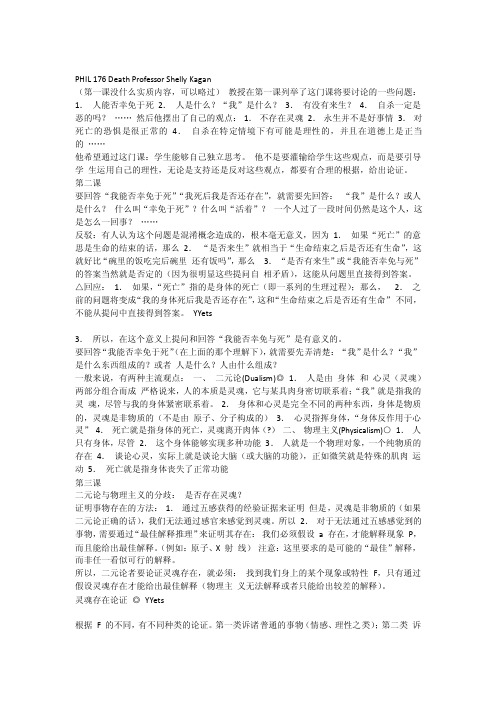
PHIL 176 Death Professor Shelly Kagan(第一课没什么实质内容,可以略过)教授在第一课列举了这门课将要讨论的一些问题:1.人能否幸免于死2.人是什么?“我”是什么?3.有没有来生?4.自杀一定是恶的吗?……然后他摆出了自己的观点:1.不存在灵魂2.永生并不是好事情3.对死亡的恐惧是很正常的4.自杀在特定情境下有可能是理性的,并且在道德上是正当的……他希望通过这门课:学生能够自己独立思考。
他不是要灌输给学生这些观点,而是要引导学生运用自己的理性,无论是支持还是反对这些观点,都要有合理的根据,给出论证。
第二课要回答“我能否幸免于死”“我死后我是否还存在”,就需要先回答:“我”是什么?或人是什么?什么叫“幸免于死”?什么叫“活着”?一个人过了一段时间仍然是这个人,这是怎么一回事?……反驳:有人认为这个问题是混淆概念造成的,根本毫无意义,因为1.如果“死亡”的意思是生命的结束的话,那么2.“是否来生”就相当于“生命结束之后是否还有生命”,这就好比“碗里的饭吃完后碗里还有饭吗”,那么3.“是否有来生”或“我能否幸免与死”的答案当然就是否定的(因为很明显这些提问自相矛盾),这能从问题里直接得到答案。
△回应:1.如果,“死亡”指的是身体的死亡(即一系列的生理过程);那么,2.之前的问题将变成“我的身体死后我是否还存在”,这和“生命结束之后是否还有生命”不同,不能从提问中直接得到答案。
YYets3.所以,在这个意义上提问和回答“我能否幸免与死”是有意义的。
要回答“我能否幸免于死”(在上面的那个理解下),就需要先弄清楚:“我”是什么?“我”是什么东西组成的?或者人是什么?人由什么组成?一般来说,有两种主流观点:一、二元论(Dualism)◎1.人是由身体和心灵(灵魂)两部分组合而成严格说来,人的本质是灵魂,它与某具肉身密切联系着;“我”就是指我的灵魂,尽管与我的身体紧密联系着。
2.身体和心灵是完全不同的两种东西,身体是物质的,灵魂是非物质的(不是由原子、分子构成的)3.心灵指挥身体,“身体反作用于心灵”4.死亡就是指身体的死亡,灵魂离开肉体(?)二、物理主义(Physicalism)○1.人只有身体,尽管2.这个身体能够实现多种功能3.人就是一个物理对象,一个纯物质的存在4.谈论心灵,实际上就是谈论大脑(或大脑的功能),正如微笑就是特殊的肌肉运动5.死亡就是指身体丧失了正常功能第三课二元论与物理主义的分歧:是否存在灵魂?证明事物存在的方法:1.通过五感获得的经验证据来证明但是,灵魂是非物质的(如果二元论正确的话),我们无法通过感官来感觉到灵魂。
耶鲁大学开放课程—哲学:死亡

不同的手段导致死亡的方式不同,但是我认为有一点是相同的,你的死亡伴随着这一系列的事情发生,都是些什么事呢?事实上我对这方面不是很了解。
我只能认为是不论最初的死亡原因是什么,最后血液不再流动,氧气不能输送到全身,导致大脑变得缺氧,由于细胞中缺少氧气,所以细胞不能完成它们的各种新陈代谢活动,因此他们不能修复各种损伤,或者生成所需的氨基酸蛋白质,当细胞开始衰退,细胞组织开始损坏,它们不能像正常的细胞一样修复,结果就是重要的细胞组织衰竭了,瞬间肉体死亡了,我想说我不是很确定这个是不是真的。
刚才讲的那个小故事是不是真的。
但是有些类似的故事就可能是真的。
从哲学的观点来看,我已经把整个过程画在了黑板上。
由于我不知道某些具体的生理过程,我们可以叫它B1 B2 B3一直到Bn ,在B1之前你的身体还在运作,正常运作也就是机体的呼吸复制细胞诸如此类。
在这个过程的最后也就是Bn 身体死亡了,B是指身体B1到Bn 这就是死亡的过程至少这是身体上的死亡。
就像我说的这就是一些医学院的人生物学家或生理学家向我们描述的死亡。
然而问题又来了,假设我们叫这个过程“肉体死亡”,把这些发生在最后阶段的事称做肉体死亡。
■■■这门课的成绩会由以下几部分构成:平时作业占20%,期中考试占30%,期中有时在10月份考,期末考试占50%;这就是成绩的加权比例。
我还有另外一套评分计划叫“特赦计划”,就是我会比较你的学期总成绩和你的期末考试成绩,我会取这两个成绩中更高的作为你的课程最终成绩。
……接下来学好物理最重要的就是完成作业,作业的权重虽然只有20%,但这个数字是无法真正衡量其重要性的,作业能让你真正弄清楚自己对知识的掌握程度,如果你只看我在黑板上的推导,觉得很有道理,好象自己也能行,但是只有你动手去解题,才是验证自己会与不会的唯一方法。
只有这个时候你才知道自己是否真正理解了,所以,我要求你们按时按量地完成作业。
如果我周三布置了关于该周课堂内容的作业,你们应该尽快着手去做,因为当你下周来上新课时我会假设大家都已经把上周题目做完了。
耶鲁大学公开课:死亡

耶鲁大学公开课:死亡卡根的反驳耶鲁大学哲学教授谢利?卡根讲授的公开课“死亡”颇受欢迎,原因大概有二:一是这位教授的形象招人喜爱,他一脸的络腮胡,上课时穿着牛仔裤和运动鞋,有时还会盘腿坐到讲台上;第二就是他讲的主题了,虽然公开课都是导论性质的课程,但卡根的死亡公开课并不易懂。
他坦承:“其中一些材料是很难懂的,有些思想可能很难一下就把握住。
如果你有时间的话,把某些部分读上两遍会很有帮助。
”卡根在课上也会讲些笑话,比如他介绍说,美国喜剧演员菲尔兹说,希望他的墓碑上写的是:“我宁愿待在费城(而非长眠于此)。
”他提到了卡夫卡等作家的作品,但大部分时间都是在不遗余力地分析和反驳跟他对立的立场。
卡根显然是一位训练有素的分析哲学家,听他的课需要很强的思辨能力。
他会还原一个命题的完整论证过程,考虑它的各种合理性,然后逐一加以反驳。
他使用了最佳解释推论、两难推理、类比等各种论证方法。
他的讲稿一共16章,前半部分讨论的是关于死亡的形而上学问题,如身心关系、人格同一性等,后半部分是价值理论,读到后半部分才会比较轻松。
卡根上来就亮出了他的基本观点:世上没有非实质的、不朽的灵魂,我们只是躯体,当我们的躯体死亡时,意味着我们的存在宣告终结,而且永生并不是值得追求的目标。
他最后又总结了一遍:“我们只是机器,当然我们不是随便什么机器,我们是神奇的机器,是有感情、有梦想、有创造力的机器。
死亡不是什么难以理解的巨大谜题,死亡并不比你的灯泡或者电脑坏掉更神秘……对死亡的恐惧是一种不恰当、不合理的反应。
我邀请你在面对死亡时能无所畏惧,不存幻想。
”在反驳灵魂存在的说法时,卡根使用了“最佳解释推论”:对于看不见的东西,我们如何证明它们存在呢?如果设定某种我们看不见的东西的存在,能帮助我们最佳地解释用其他方法无法解释的事物,我们就推论说这些事物是存在的。
这种论证被称为“最佳解释推论”。
比如我们相信存在着病毒和细菌,因为这样我们就能解释人们为什么会生病。
耶鲁大学开放课程—哲学:死亡.25.Open.Yale.course—Philosophy:Death.DivX-YYeTs人人影视
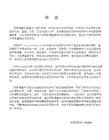
,但后来又好了but you recover.
,你重新过上有价值的生活You're going to return to a life that's worth having.
,你的生活从值得过下去where you go from a life worth living
,变成不值得过下去to a life not worth living
,并且一直持续下去and it stays there.
,但假如不是这样But suppose instead,
,情况是这样的we have a situation like this.
,不值得过下去的日子的唯一方法the later chunk not worth living,
,如果这段日子足够短at least if that chunk's small enough--
,假设是这样的suppose it was like this
,你会说 这么早自杀不合情理you'd say it doesn't make sense to kill yourself this early.
,代表你生活的起落沉浮about your life doing better or worse,
,每个都标注了and noted for each one of them,
,在哪个时间点 如果有的话at what point, if ever,
,自杀也许是合理的选择suicide might be a reasonable choice.
耶鲁大学开放课程—哲学:死亡.21.Open.Yale.course—Philosophy:Death.DivX-YYeTs人人影视
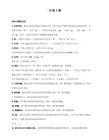
某人偶然间Indeed, one occasionally
在报上读到reads in the newspaper about this sort of thing
可以对这些疾病如此检测where you can get tested for such and such a disease.
就在他等待电梯上来的时候a minute and a half goes by
一分半钟已经悄然间逝去了while he's waiting for the elevator to come.
如果你知道你的生命还有一年或者两年If you knew you had a year left or two years left,
这是个很有效的测试it's sort of a useful test for asking yourself
反问自己 生命中哪些事是有价值的what are the things you must value in life--to ask,
如果你知道自己还有what would you choose to do if you knew you had
上节课我们开始探讨All right. Last time we started asking ourselves
到底是死亡的哪些因素about what are some of the other aspects of death that
可能使它产生危害 或者说might contribute to its badness, or
年 年 年 等等, , and so forth.
耶鲁大学开放课程—哲学:死亡.09.Open.Yale.course—Philosophy:Death.DivX-YYeTs人人影视 [字幕转换助手

it would follow that it was indestructible and,
从而实现灵魂不朽
hence, immortal.
柏拉图问到 有什么证据能
He asks, what's our evidence
证明某些东西是不可摧毁的呢
for some things being indestructible?
我还花时间给大家讲了
And I spent a fair bit of time suggesting
如果仔细推敲柏拉图对不可见下的定义
that if you pin down precisely what Plato means by invisible,
这条论证实际上并不成立
the argument doesn't actually go through.
但至少表明 我们不应对这条假设
but at least suggests that we shouldn't be so ready to assume
确信无疑
that sort of position is correct.
在著名的《理想国》一书中
In The Republic, famously,
in which Plato tries to argue for the simplicity of the soul.
你们还记得这一系列观点就是
The set of connected ideas, you'll recall, were these:
柏拉图想说明
that Plato wants to suggest that
耶鲁大学开放课程—哲学:死亡.11.Open.Yale.course—Philosophy:Death.DivX-YYeTs人人影视 [字幕转换助手
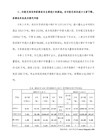
That's what the body theory says.
不像灵魂理论那么神秘
And unlike souls, where it's all rather mysterious
你很难辨别灵魂
how you could tell whether soul swapping
不能排除这种可能
Nothing rules out the possibility that
即肉体同一是
having the very same body
成为同一个人的关键
is the key to being the very same person over time.
即使你相信灵魂存在
"Well what's the alternative?"
自然而然 另一个观点就是
Now, the natural alternative is to say,
"成为同一个人的关键
"The key to being the same person
不是灵魂的一致性
is not the sameness of the soul,
且不论灵魂存在与否
whether or not it exists,
而是拥有同一肉体"
but rather having the very same body."
再说一遍 我不打算
And again, although I'm not going to
反复讨论这个问题
go on and on about this point,
耶鲁大学公开课:死亡

谢谢观看
推荐
推荐
★最受欢迎的国际名校三大公开课之一,总点击量超过数亿次。
★最像顽童的耶鲁大学教授谢利·卡根,穿着牛仔裤、帆布鞋,盘腿坐在讲台上和大家侃侃而谈的形象深入 人心,成为国内年轻人追捧的“明星教授”。
★死亡是“生的局限性”,是生命的参照物,唯有了解死亡,生命的可贵才能彰显。直面死亡、思考死亡, 就是思考人生。
那么,我们将讨论什么呢?我们将讨论开始思考死亡的本质时出现的哲学问题,诸如:我们死亡时发生了什 么?不过,为了着手谈论这一问题,我们首先要思考:我们是什么?人是怎样的一种实体(entity)?尤其是, 我们有灵魂(soul)吗?
在一开始,我还要解释一下,在本书中我把“灵魂”当作一个哲学术语来使用。我用“灵魂”一词指某种非 物质的(immaterial)、完全不同于我们肉体(body)的东西。
耶鲁学公开课:死亡
2014年北京联合出版公司出版的图书
01 内容简介
03 作者简介 05 推荐阅读
目录
02 推荐 04 目录
基本信息
最受欢迎的国际名校三大公开课之一,倍受欢迎的明星教授卡根,带我们理性思考人生最重要的课题。了解 死亡,生命的可贵才能彰显。
内容简介
内容简介
耶鲁大学公开课:死亡有件事是确定无疑的:最终我们都会死亡。 但我们真的相信自己会死吗? 人是否有不朽的灵魂? 死亡是生命的真正终结吗? 如果死后不再存在,死亡就是全然的坏事吗? 永生是值得期待的吗? 在某些情况下放弃生命是否可能合理并符合道德? 对死亡的恐惧是明智的吗? 如何面对“终有一死”这个无法违背的事实? 死亡意识如何影响我们的生活方式? ……
死亡是我们最重要的课题,因为所有的生命都指向终点,我们每一天都离终点更近一些,这是在所有形式的 生命体中,最为确定无疑的事。
耶鲁大学开放课程—哲学:死亡03OpenYalecourse—Philosophy:

without actually having a canonical list.
只是把它们视为人具备的能力
Just think of them as the set of abilities that people have,
作为人有别于粉笔 收音机
the things that we can do that other physical objects-- chalk, radios,
人人影视
可以从事一系列特定的活动
can do a certain array of activities.
人是可以思考 可以互相交流的肉体
People are bodies that can think, that can communicate,
他有理性 可以规划 可以感知
校对监制:柠檬meg 幻影飞 梁良
我们探讨了两种观点
with regard to the question, "What is a person?"
一种是二元论的观点
{\c
上堂课上我们用了很长的时间来介绍它
that's the view that we spent a fair bit of time sketching last meeting.
that are rational, that can plan, that can feel things,
有创新等各种能力
that can be creative, and so forth and so on.
我们可以探究一下
Now, we might argue about
耶鲁大学开放课程—哲学:死亡

中文名: 耶鲁大学开放课程—哲学:死亡英文名: Open Yale course—Philosophy:Death资源格式: RMVB版本: [YYeTs人人影视出品][中英双语字幕][更新到20集] 发行日期: 2009年8月4日地区: 美国对白语言: 英语文字语言: 简体中文,英文简介:课程类型:哲学独立字幕下载:/listsubtitle.html课程介绍:这次讲课的教授是个大仙.他那么"朴素",我是说他的坐姿那么朴素,因为人类自古就是那样坐的,盘腿坐.不过他是盘腿坐在讲台上,这就不是很朴素了,因为古代没有桌子,大家都坐在地上。
我大学的时候,美国老师屁股一扭坐在课桌或讲台上,我们这些有着“师道尊严”的中国人是很“友邦惊诧”的,但时间长了就习惯了。
英国人不这样,他们总那么严谨严肃,有点象中国人——但千万别真的以为英国人象中国人,与其说英国人与中国人象,不如说美国人与中国人更象一些:都很粗俗豪放,并且中国与美国越来越象了。
这老师穿着鞋子直接盘腿坐在讲台上,还好他穿的球鞋很白很干净,不太碍眼。
他长得有点象撒达姆大叔,还满脸胡须,但他个子很小,所以他要坐在桌子上才能显眼一些,台下据说有150-180名学生,是个大教堂,要我个子那么小我也“坐”桌子上。
他常说,we are sitting here to ...,确实彼此都“坐着”,很平等。
相比古代的大师,比如柏拉图或佛都是如此随意开讲座谈生死的吧。
看着他那样手舞足蹈的乱说一气,我觉得很舒服。
这大叔一定是个很怪的人,这从一开课就看出来了。
不过不会特别怪,因为这里毕竟是耶鲁,我是说,假如他有精神病啊什么的偏差,心理学院的老师们肯定就早就派上用场了。
他一上来就说,别管我叫什么什么“教授”,我喜欢听你们叫我shelly。
从他的简历看,他应该是个伦理学专家,写过一些这方面的书籍。
今天香港著名艺人肥姐逝世,这就是活生生的死亡。
死亡对普通人意味着什么?死亡对哲学家又意味着什么?实际上讲死亡的哲学就是在讲哲学家们如何看待死亡。
耶鲁大学开放课程—哲学:死亡.07.Open.Yale.course—Philosophy:Death.DivX-YYeTs人人影视 [字幕转换助手

we don't actually come across these objects
直接面对这些对象或者个体
or entities in the physical world.
我们可以探讨
So that we can talk about
事物的不同程度的美丽
things being beautiful to varying degrees,
这就是梦
That's how dreams are.
当你置身其中 好像一切都顺理成章
And when you're in it, it sort of all makes sense.
你被卷入其中了
Right? You're kind of caught up,
但当你退出来时会说
我们必须假定某种第二领域的存在
we have to posit the existence of a kind of second realm,
这存在于柏拉图的
in which exist the Platonic--
那些如今被称作为
as they're nowadays called--
或抽象的性质
or abstract properties.
我们假定这些的原因是
And the reason for positing these things is
人人影视
这样我们就能够清楚的
because we're clearly able to
去思考这些理念
这是只大象宝宝
- 1、下载文档前请自行甄别文档内容的完整性,平台不提供额外的编辑、内容补充、找答案等附加服务。
- 2、"仅部分预览"的文档,不可在线预览部分如存在完整性等问题,可反馈申请退款(可完整预览的文档不适用该条件!)。
- 3、如文档侵犯您的权益,请联系客服反馈,我们会尽快为您处理(人工客服工作时间:9:00-18:30)。
to continue to exist?
当然 我们更会这样问
Now, of course, we're going to ask most particularly,
这样一个东西如果肉体不死的话
what would it be for a thing like that
会是什么样呢
它可以做某些特殊事情
a body that can do certain special tricks,
并按特定的方式运作
a body that can function in certain ways
如此这般 我们就将其称之为人
that we associate with being a person,
是完完全全同一个吗
who is standing in front of you lecturing to you now?
现在这个人能活过这周末吗
Will that person survive the weekend?
我当然希望活过这周末
I certainly expect to survive the weekend.
幸存一段时间 对我来说意味着什么
what is it for me to survive, period?
举个大家都熟悉的例子
Take the more familiar hum-drum case.
今天我站在这里给你们讲课
Here I am lecturing to you today,
so there's no good reason
可以证明这一额外实体的存在
to posit this extra entity.
大多数时候
For the most part, then,
我会把灵魂置于一边 避而不谈
I'm going to be putting aside soul talk.
如果灵魂不存在
If there were no souls,
接下来就是我们要讨论的东西
then here's what we'd have to say.
所以即使我
So although I'll be largely talking
从物理主义者的角度高谈阔论
from the perspective of the physicalist,
你也许会认为这是不可能的 但事实上
if we are physicalists, but in fact,
答案未必如此
it's not so clear the answer to that is no.
为了说明这一特殊的问题
But in order to address that particular question--
亦或是肉体与非物质灵魂的结合体
Am I a body and an immaterial soul as well?
又或者 严格来说只是灵魂而已
Or perhaps, strictly speaking, just the soul?
思考完这个问题
Having looked at that question,
想想这个问题 我能免于一死吗
in thinking about the question, could I survive my death?
这里我们要先弄清两个问题
there were two basic things we had to get clear on.
第一 我们得弄清我是什么
得出的观点
who does believe in souls.
但正如我所说 大多数时候
But, as I say, for the most part,
我会假设灵魂不存在
I'm going to be assuming there are no souls.
对于你们当中仍然
For those of you who still do believe
现在我们来看第二个基本问题
we're now going to turn to the second basic question,
如果存活下来会是什么样
what woห้องสมุดไป่ตู้ld it be to survive?
这样一个东西继续存在的话
What would it be for a thing like that
也就是具备人体功能的肉体
a body that can P-function, as we put it.
现在我已经向你们解释了
Now, I've given you my reasons
我为什么不相信灵魂存在
for believing there are no souls.
基本上 各种各样
对我来说 活到周二
For me to survive until Tuesday,
可以说就是有人
presumably is for there to be somebody,
能活着在下周二给你们讲课
some person alive lecturing to you on Tuesday,
和现在在这里和你们交谈的是同一个人
to be the same person as the person here
意味着什么
talking to you on Thursday?
我们可以问得更宏观些
We can ask the question more grandly,
把时间拉长
about larger expanses of time.
但如果你还是不能信服物理主义
if you haven't become convinced of the truth of physicalism,
那就顺其自然吧
so be it.
如果我们认为人本质上只是一具肉体
We'll at least explore what will we say about death
我们至少要探讨一下大家会怎么看待死亡
if we've decided that people are basically just bodies?
还记得这学期刚开始时我说过
Now, you'll recall that at the start of the semester I said,
在上节课最后
At the end of last class,
我说从现在开始
I suggested that from here on out
我将假设灵魂不存在
I'm going to be assuming that there is no soul.
并从物理主义者的观点
I'm going to be discussing the issues
to survive the death of the body?
甚至人是否真得可能
Could it even make sense for a person
肉体不死呢
to survive the death of his body?
如果你是个物理主义者
You might think the answer to that is no,
我会时不时
Periodically, I'll come back and talk about
来讲讲那些
how some issue that we are considering
看似是从灵魂存在论角度
might look from the perspective of somebody
我们可以提出有关存活的问题
can be asked about that very simple case.
下周二来给你们讲课的那个人
Is the person who's going to be lecturing to you on Tuesday
和现在站在你们面前讲课的这个人
the very same person as the person
但活过这周末意味着什么
But what is it to survive the weekend? What is it?
也许我们会说 看
We might say, look,
我们已经得到答案的雏形了
we've already got the beginnings of an answer.
相信灵魂存在的人
in the existence of souls,
我想你们可以
I suppose you could take a great deal of
从接下来的大讨论中获益匪浅
the discussion that follows
前提条件假设或虚拟方式都可以
as some form of large conditional or subjunctive.
Basically, that the various arguments
支持灵魂存在的论证
that might be offered for believing in souls
